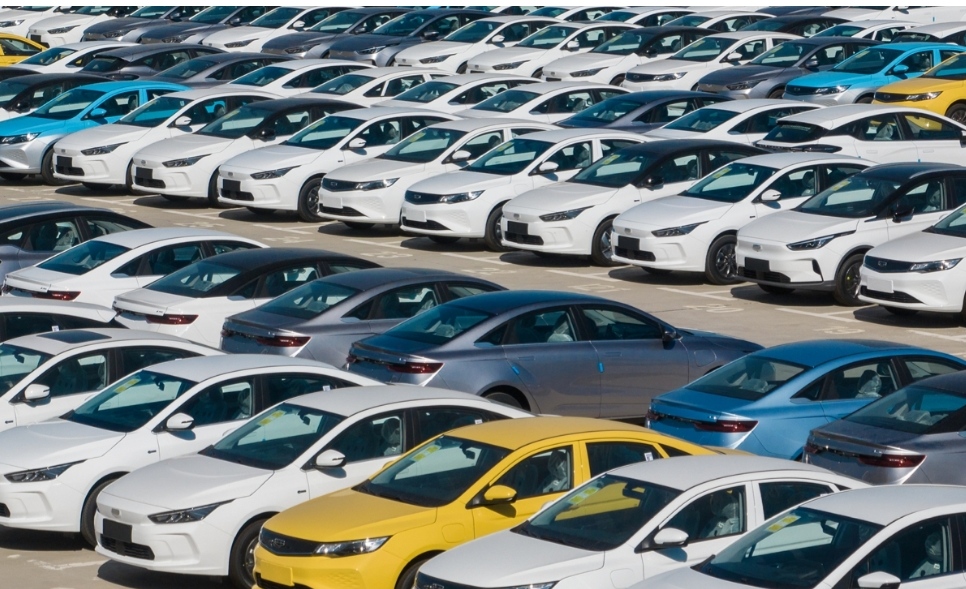EU’s ban on fossil fuel cars set to boost China’s EV exports

New-energy vehicles in a factory in Jinzhong, North China’s Shanxi Province on September 7, 2022
The European Parliament has formally passed a law to ban the sales of new gasoline and diesel cars and vans in the EU starting in 2035 as part of the bloc’s strategy for reaching climate neutrality.
Experts said that the EU’s adoption of electric vehicles will boost China’s exports to the market.
China’s exports of new-energy vehicles may rise at least 50 percent year-on-year this year to about 1 million units.
With 340 votes in favor, 279 against and 21 abstentions, members of the European Parliament endorsed the deal reached with the European Council on revised carbon dioxide emission performance standards for new cars and vans in line with EU’s increased climate ambition, according to a statement on the website of the European Parliament on Tuesday (local time).
The legislation sets out a path toward zero carbon dioxide emissions for new passenger cars and light commercial vehicles in 2035. It is by far the most aggressive move by a major economy in accelerating the transition to electric vehicles (EVs) and combat climate change.
“While boosting the development of EVs in Europe, the new policy also serves as a sound opportunity for Chinese EV brands to go global,” Cui Dongshu, secretary general of the China Passenger Car Association, told the Global Times on Wednesday.
China’s pure EVs have strong global competitiveness, Cui said, noting that the country’s production accounts for about 70 percent of the market globally. Chinese EVs can meet EU regulations and standards.
He projected that China’s EV exports will grow by at least 50 percent year-on-year in 2023, thanks to smoother international shipping as well as the improvement of Chinese EVs in terms of performance and technological innovations such as battery endurance and man-machine interactions.
Zhang Xiang, a visiting professor at the Engineering Department of Huanghe Science and Technology University, has similar views.
“Chinese EV manufacturers have advantages in technology, cost performance and software when compared with EU carmakers,” he said, noting that Chinese EVs have already been exported to markets like France, the UK, the Netherlands and Norway.
In recent years, Chinese vehicle producers have expanded their presence in the European market and conducted close industrial cooperation with their European partners, contributing to the green and sustainable development of the transport sector.
On Friday, BYD announced that it had been awarded a substantial e-bus order by Transdev AB, one of the largest public transport operators in Sweden. The order for 52 BYD eBuses is the largest order that Transdev has placed with BYD for e-buses since 2015, when it introduced the BYD brand to its fleet, according to a press release on the company’s website.
There are now more than 700 BYD e-buses in service or on order in the Nordic region, and more than 3,000 in Europe, covering 95 cities in 17 European countries.
In Europe, BYD e-buses have collectively traveled more than 197 million kilometers and reduced carbon emissions by more than 211,000 tons, according to the company.
NIO, another Chinese EV maker, on February 7 announced its participation in EU’s Horizon Europe research and innovation program. The program aims to invest 95.5 billion euros ($102.35 billion) from 2021-27 to together with world-class research teams to tackle climate change.
“NIO’s power products and solutions in Europe, together with 26 partners, have been awarded funding to further the research and development of energy storage systems in e-mobility services.
“In addition, NIO is offering power grid services with its power swap stations to make energy systems more resilient, stable and efficient,” the company said.
In addition to the EU, other major markets such as the US are expected to follow suit with similar measures on the climate agenda, Zhang said.
China is pushing the transition to EVs at a pace faster than that of the EU, he said, noting that South China’s Hainan Province last year announced a province-wide ban on the sale of fuel-powered cars by 2030.




